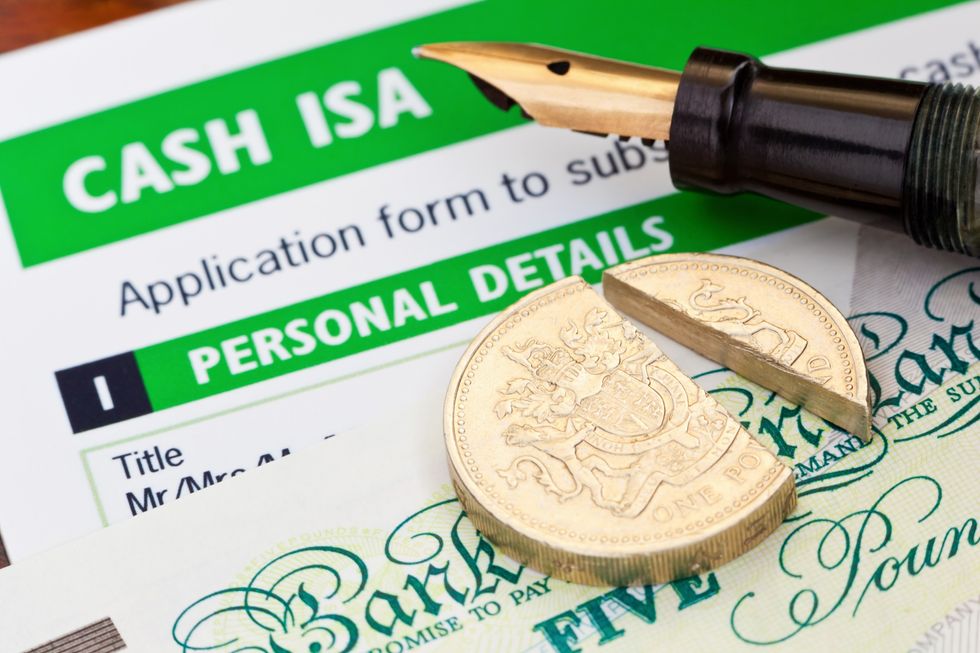Nationwide Building Society urges Britons to 'check' tax rules on savings interest as rates hit 6.5%

Britons can still access accounts with high savings interest rates but Nationwide Building Society is reminding customers of their potential tax liability
Don't Miss
Most Read
Latest
Nationwide Building Society is offering savers competitive interest rates of up to 6.5 per cent, while reminding customers to be mindful of tax rules that have implications on their returns.
This is due to the existing HM Revenue and Customs (HMRC) tax allowances. Basic rate taxpayers can earn up to £1,000 in savings interest before being taxed, while higher rate taxpayers have a £500 allowance. Additional rate taxpayers receive no tax-free allowance on their savings interest.
In recent years, banks and building societies have offered high interest rates on savings accounts thanks to the Bank of England's decision to hike the base rate in its fight against inflation.
The high interest rates have led to increased concern among savers about potential tax bills, particularly for those with substantial savings outside of tax-free products like ISAs.
ISAs remain a popular choice for tax-efficient saving, with savers able to contribute up to £20,000 annually without paying any tax on interest earned. Nationwide has clarified that their standard bonds are not tax-free, unlike their ISA products.
Do you have a money story you’d like to share? Get in touch by emailing money@gbnews.uk.

Nationwide is alerting customers to tax rules on savings interest
|GETTY / NATIONWIDE
Nationwide's current ISA offerings include a One Year Fixed Rate Cash ISA at 4.1 per cent and a One Year Triple Access Online ISA at four percent. These rates are lower than some of the building society's standard savings products.
The FlexOne Saver offers five per cent interest, while the Flex Regular Saver provides the highest rate at 6.5 per cent. Some savers are weighing the benefits of higher interest rates against potential tax implications.
As is stands, Nationwide offers several current account options, with the FlexDirect and FlexAccount available without monthly fees. The FlexPlus account carries an £18 monthly fee.
On X, a Nationwide customer recently raised questions about accessing their ISA funds, prompting clarification about withdrawal options. They asked: "I currently have an ISA with you and can add money online to it but I cannot withdraw.
 ISAs are useful tools for those looking to save more than the personal savings allowance threshold without having to pay tax | GETTY
ISAs are useful tools for those looking to save more than the personal savings allowance threshold without having to pay tax | GETTY"The branch have told me there I only way to do that. If I open the current account, can I do that online and do you do a free one?" In response, the building society shared they do have a current account and product with no monthly fees attached.
The customer then asked: "Would it be acceptable to do that for the sole purpose of transfer money in and out of a ISA and having access to your higher rate savings accounts , it would not be used for daily transactions."
According to Nationwide, customers can open a free current account online to facilitate transfers between savings products. The customer asked about their tax liability as a basic rate taxpayer.
The building society stated: "This will be based on your personal savings allowance, which you can check [on the Nationwide website]. The bonds we have available at Nationwide aren't tax-free, however ISA's will be.
Sarah Coles, the head of personal finance at Hargreaves Lansdown, has previously highlighted growing concerns about tax implications for savers due to the existing allowance thresholds.
"Although savings rates have fallen from the peak, there are a number of accounts offering just shy of 5 percent," she said. "It means many more people worrying about tax on savings, which has pushed cash ISAs up the agenda for millions of savers."
LATEST DEVELOPMENTS:
 Analysts are sounding the alarm over a little-known "tax trap" which could see returns from savings interest | GETTY
Analysts are sounding the alarm over a little-known "tax trap" which could see returns from savings interest | GETTY ISA providers, including Hargreaves Lansdown, have noted rising interest in tax-efficient savings options amid the current high-interest environment. Nationwide's bond offerings provide additional options for savers seeking fixed returns.
The building society's One Year Fixed Rate Online Bond and 1 Year Fixed Rate Branch Bond both offer four per cent interest. These bonds can be opened with a minimum deposit of just £1.
Savers can deposit up to £5 million in these accounts. Unlike ISAs and Premium Bonds, these standard bonds are subject to taxation based on the customer's tax bracket.
However, customers need to consider their personal savings allowance when calculating potential returns, analysts warn.











